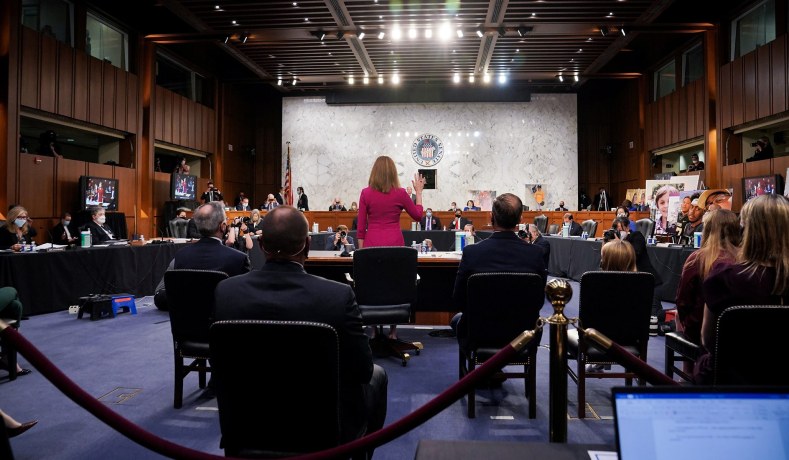
Does the longstanding norm of nominees avoiding questions on anything substantive serve the country?
Amy Coney Barrett acquitted herself very well at her confirmation hearings, which means, quite often, that she refused to answer questions.
Barrett is an exemplary nominee who was knowledgeable, clear, and composed throughout the three days of questioning, but not always responsive.
She can’t be blamed for this. She played the game as the rules have been established for decades, and played it well. It is to take nothing away from her to wonder whether this longstanding norm of nominees running away from many substantive questions serves the Senate or the country well.
The Court has taken on an outsize role in our national life, while at the same time nominees say less than ever about their views during the one chance the senators have to vet them publicly. This is a bizarre disconnect. You’d think we’d want to hear more from a prospective member of a body that elections are explicitly fought over and that, for better or (mostly) worse, determines how we are governed.
It was the confirmation battle over Robert Bork, of course, that changed everything. As Ilya Shapiro notes in his recent book, Supreme Disorder, there were five days of the hearings involving Bork himself, who was highly accomplished but acerbic and uncoachable.
The journalist Theodore White famously said upon hearing Barry Goldwater’s unapologetic 1964 convention speech, “My God, he’s going to run as Barry Goldwater!” Likewise, Bork testified as Bork — brilliant and provocative — and it was a political debacle.
Ruth Bader Ginsburg set the new standard. As Shapiro writes, Ginsburg executed a “pincer movement” at her hearings, refusing to discuss both specific fact patterns (because they might come before the Court) and abstract matters (because “a judge could deal in specifics only”).










